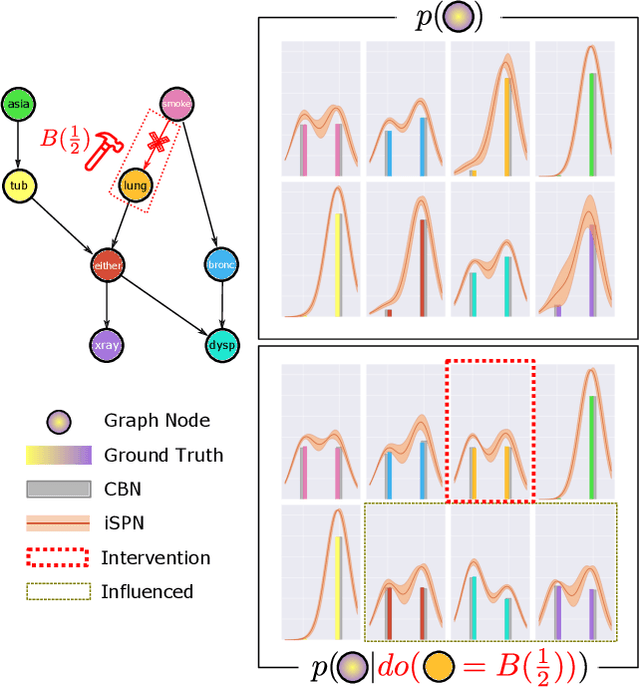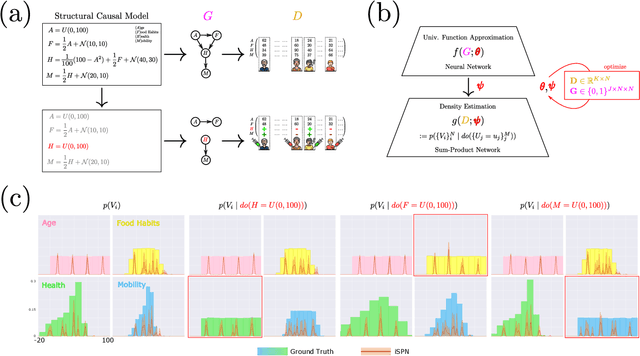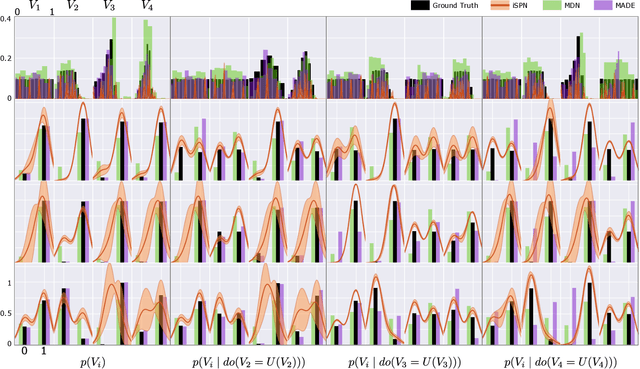Interventional Sum-Product Networks: Causal Inference with Tractable Probabilistic Models
Paper and Code
Feb 23, 2021



While probabilistic models are an important tool for studying causality, doing so suffers from the intractability of inference. As a step towards tractable causal models, we consider the problem of learning interventional distributions using sum-product networks (SPNs) that are over-parameterized by gate functions, e.g., neural networks. Providing an arbitrarily intervened causal graph as input, effectively subsuming Pearl's do-operator, the gate function predicts the parameters of the SPN. The resulting interventional SPNs are motivated and illustrated by a structural causal model themed around personal health. Our empirical evaluation on three benchmark data sets as well as a synthetic health data set clearly demonstrates that interventional SPNs indeed are both expressive in modelling and flexible in adapting to the interventions.
 Add to Chrome
Add to Chrome Add to Firefox
Add to Firefox Add to Edge
Add to Edge